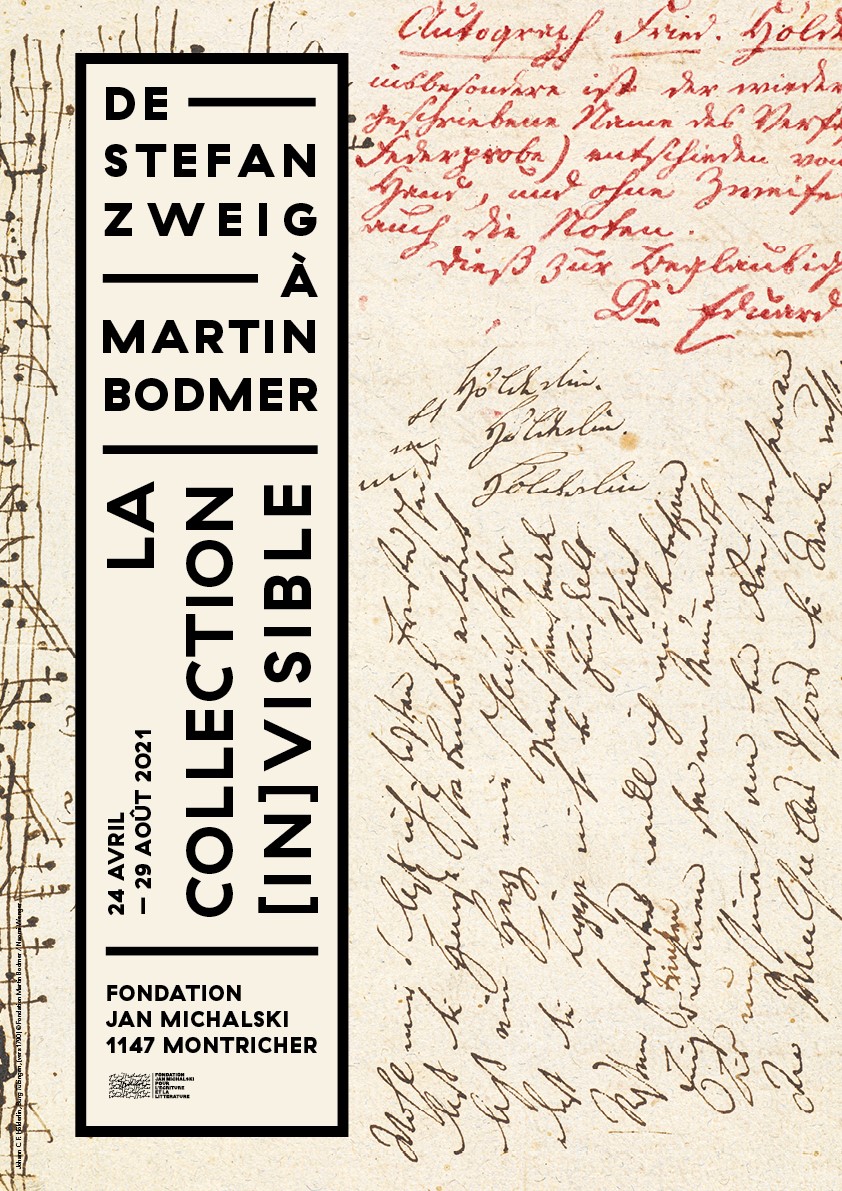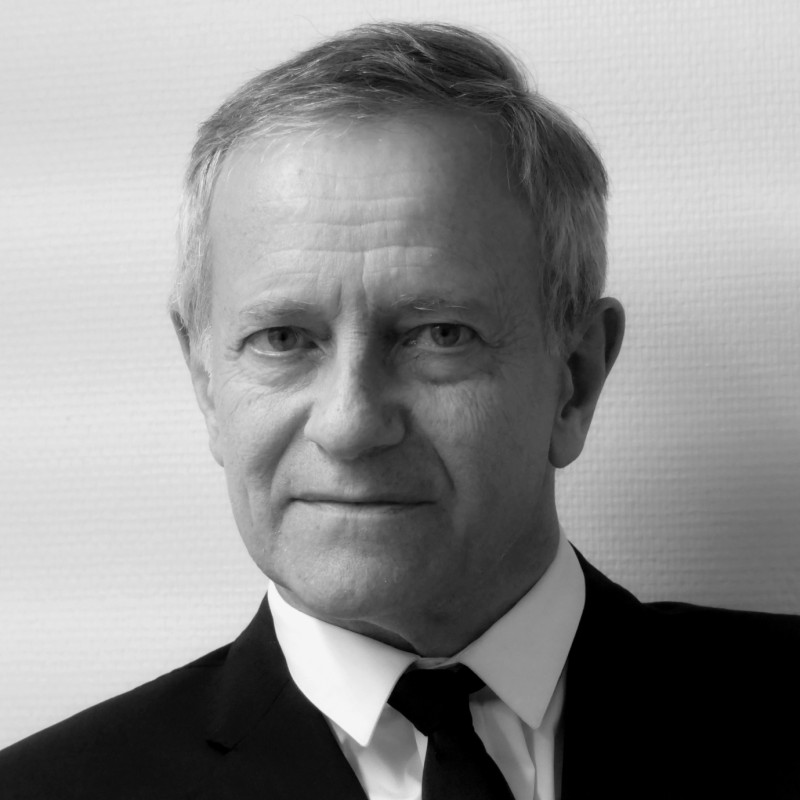
Exposition De Stefan Zweig à Martin Bodmer
la collection [in]visible
Johann C. F. Hölderlin, Burg Tübingen, [vers 1790] © Fondation Martin Bodmer / Naomi Wenger
Graphisme : Karen Ichters
Introduction
Stefan Zweig (Vienna, 1881 – Petrópolis, 1942) wasn’t only the internationally successful author of Amok and Letter from an Unknown Woman, he was also an important collector of literary manuscripts. He managed to amass an eclectic range of texts that reflect his keen interest in the diversity of European literatures, a collection of several hundred autograph texts by the authors he most admired. This trove includes rough drafts of famous or unpublished works, preparatory notes, personal letters, even manuscripts meant for the printers, from Renaissance writers up to his contemporaries. This personal gallery of the “greatest masters of all time” – Goethe, Balzac, and Rimbaud found side by side with Racine, Casanova, and Wilde – also represented for him the chance to sound the mysteries of artistic creation, an abiding quest throughout his busy and turbulent life.
![Arthur Rimbaud, Enfer de la soif [1872?] © Fondation Martin Bodmer](https://fondation-janmichalski.com/media/pages/archives/de-stefan-zweig-a-martin-bodmer/90e0c5f3b1-1647430394/rimbaud-arthur-800x-q80.jpg)
Arthur Rimbaud, Enfer de la soif [1872?] © Fondation Martin Bodmer
![Emmanuel Kant, [Fragment d'un texte philosophique] [date inconnue] © Fondation Martin Bodmer / Naomi Wenger](https://fondation-janmichalski.com/media/pages/archives/de-stefan-zweig-a-martin-bodmer/778a7feaae-1647430393/fmb-ms-kant-k-004-002_001a-800x-q80.jpg)
Emmanuel Kant, [Fragment d’un texte philosophique] [date inconnue] © Fondation Martin Bodmer / Naomi Wenger
Forced into exile by the threat of Nazism, Zweig chose to part with his collection, a magnificent trove that he deemed “more worthy to survive [him] than [his] own works” (The World of Yesterday, 1942), and turned to the Viennese bookseller Heinrich Hinterberger, with whom he organized the sale of the manuscripts from London. The greater part of the collection was acquired by the Swiss bibliophile Martin Bodmer (Zurich, 1899 – Geneva, 1971), whose already famous library Zweig knew by reputation. The characteristic unity of the Zweig collection was thus largely preserved.
Bringing to light once again a collection that was long thought to be lost, the Michalski Foundation’s show De Stefan Zweig à Martin Bodmer (From Stephan Zweig to Martin Bodmer) offers a rare opportunity to see some of the finest pages of the world’s literary heritage in the author’s hand, while questioning what could have brought together these two collectors in their respective undertakings. As heirs to Goethe, they shared both a “magical” understanding of the autograph manuscript as the circle in which to conjure up “geniuses” through their written markings, and a humanist vision of Weltliteratur – world literature – as a cultural horizon in the face of the brutal rise of nationalisms.
![Victor Hugo, « Lumière » [date inconnue] © Fondation Martin Bodmer](https://fondation-janmichalski.com/media/pages/archives/de-stefan-zweig-a-martin-bodmer/c473cb5684-1647430394/fmb-ms-hugo-h-071-007_001-002r-800x-q80.jpg)
Victor Hugo, « Lumière » [date inconnue] © Fondation Martin Bodmer
![Jean-Jacques Rousseau, « Lettres écrites de la montagne » [1763-1764] © Fondation Martin Bodmer](https://fondation-janmichalski.com/media/pages/archives/de-stefan-zweig-a-martin-bodmer/e16c44cb85-1647430394/rousseau-jean-jacques-800x-q80.jpg)
Jean-Jacques Rousseau, « Lettres écrites de la montagne » [1763-1764] © Fondation Martin Bodmer
Guest curator
Marc Adam Kolakowski, adjunct researcher at the Bodmer Lab, University of Geneva.
Archival Collection
The Martin Bodmer Foundation, Cologny – private collections
Sceenography
Raphaèle Gygi
Virtual visit
Enjoy the virtual tour !
Credits
Conception: Fondation Jan Michalski
Editing and production: Benoît Jordil, Géosud SA
Pictures of the works: © Bodmer Lab, Fondation Martin Bodmer, Naomi Wenger et Fondation Jan Michalski
Texts : Marc Adam Kolakowski et Fondation Jan Michalski
Content of the videos: Marc Adam Kolakowski et Jérôme David
Production of videos: Isokina Sàrl
Programme
Visites commentées de l’exposition
Un parcours commenté de l’exposition De Stefan Zweig à Martin Bodmer : la collection [in]visible, par Marc Adam Kolakowski, commissaire d’exposition invité.
Mardi 18 mai à 13h
Samedi 19 juin à 11h
Jeudi 22 juillet à 13h
Samedi 21 août à 11h
Ateliers enfants « La magie des mots et du papier »
Dans le cadre de l’exposition De Stefan Zweig à Martin Bodmer : la collection [in]visible, cet atelier propose aux enfants de plonger dans le mystère de la création littéraire en découvrant l’histoire d’une collection d’autographes, puis de vivre un moment créatif en compagnie de l’artiste papier Viviane Fontaine.
Mercredi 19 mai, de 14h à 16h30
Mercredi 2 juin, de 14h à 16h30
Mercredi 25 août, de 14h à 16h30
Enfants dès 7 ans, non accompagnés
Nota bene
Dans le cadre du plan de protection sanitaire, les règles d’hygiène et de distanciation seront assurées lors de la visite. Et, afin d’assurer la traçabilité des contacts en cas de suspicion d’infection par le COVID-19, nous prions les visiteurs de bien vouloir nous fournir vos noms, adresse électronique et numéro de téléphone portable. Vos données seront conservées durant 14 jours avant d’être supprimées. Elles seront remises à la demande exclusive des autorités sanitaires cantonales ou fédérales.
Related







Les manuscrits secrets de StefanZweig
Article de Julien Burri, Le Temps
Le manuscrit ou le texte dans tous ses états
Article de Boris Senff, 24heures
D'un « vrai collectionneur » à l'autre : la collection Zweig, histoire d'une transmission
Article de Nicolas Ducimetière, Artpassions

